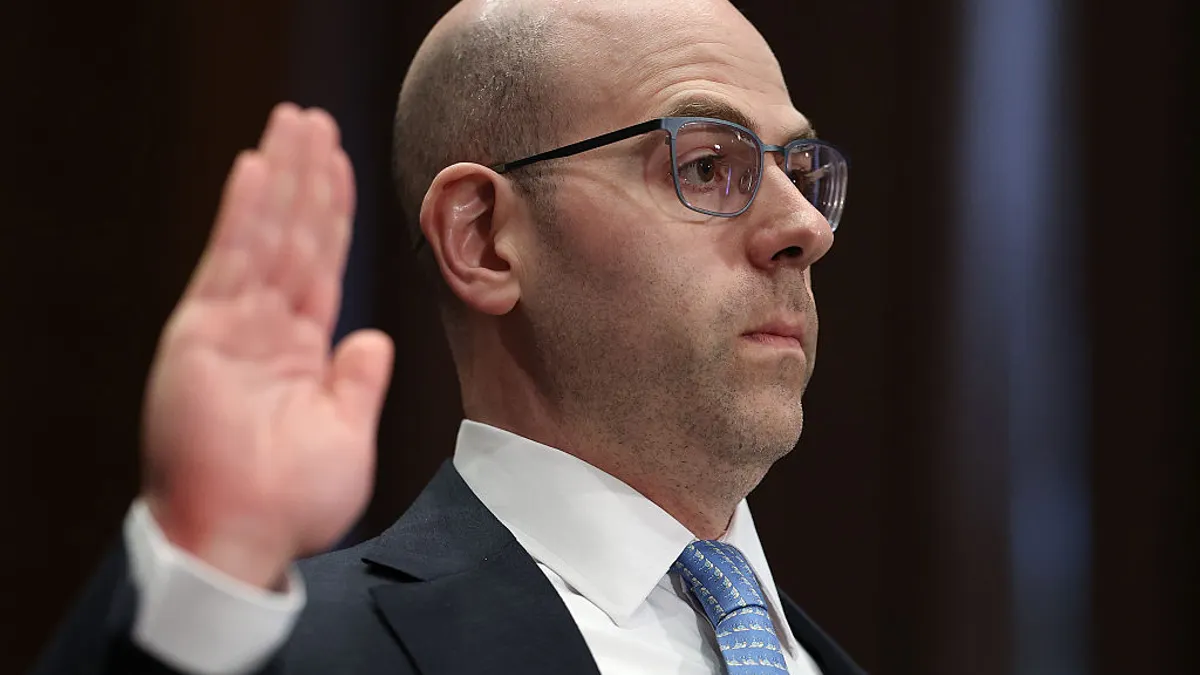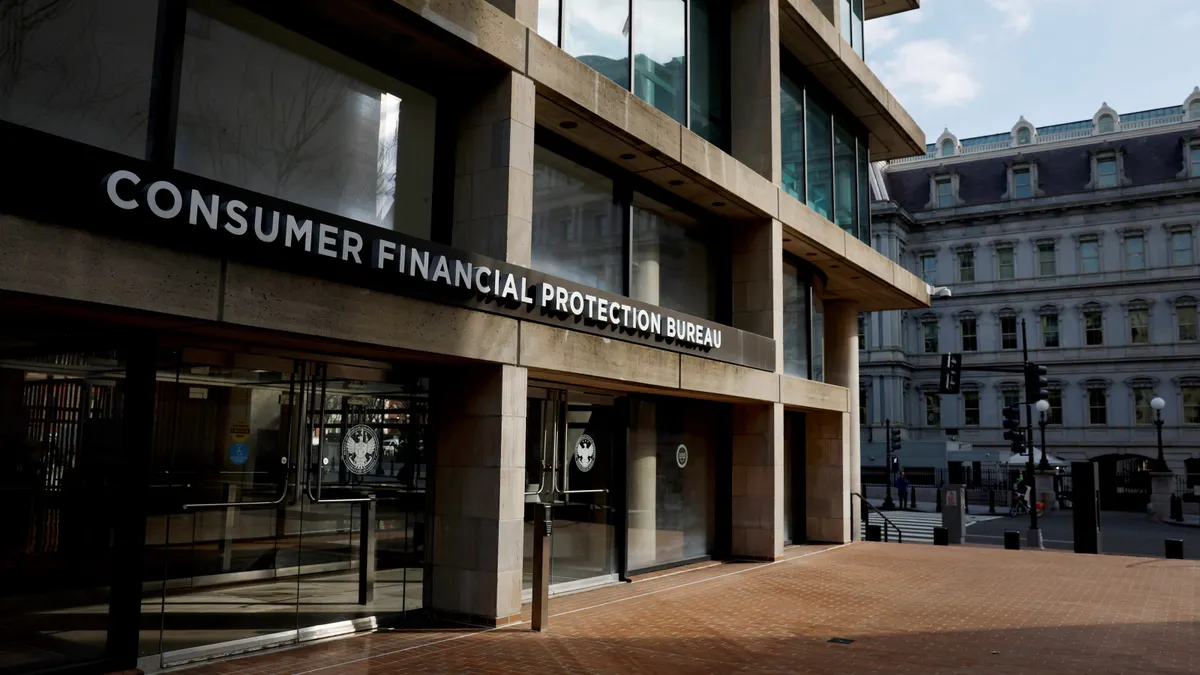Federal Deposit Insurance Corp. Chair Martin Gruenberg, in his final days leading the banking agency, identified the growth of the non-bank financial sector as one of his biggest concerns.
“It is large already, it is growing rapidly, it is deeply interconnected to the banking system, and not only is it not really regulated, it’s not transparent, so we do not have a good handle on the exposures of those financial companies,” Gruenberg said Tuesday during a fireside chat with Aaron Klein, a Brookings senior fellow.
Gruenberg, set to step down from his role Jan. 19, offered parting thoughts Tuesday, recapping the similarities between the bank and thrift crisis of the 1980s, the Global Financial Crisis of 2008 and the regional bank failures of 2023, and the need to keep the lessons they offered top of mind.
“I am concerned that memories are short,” Gruenberg said, cautioning against allowing current stability “to lull us into a false sense of complacency.”
Gruenberg has served on the FDIC’s board since 2005, making him the third-longest tenured financial regulator in American history, Klein noted. Gruenberg was vice chairman of the FDIC during the 2008 crisis, and served as a Senate Banking Committee staff member during the 1980s crisis.
The outgoing FDIC chair said he sought to share lessons from those experiences “as we head into a period of uncertainty about the future path of financial regulation” in the U.S. and globally. The incoming Trump administration is largely expected to usher in a period of lighter regulation. “In a deregulatory period, strong and effective supervision is indispensable,” Gruenberg asserted.
With regard to non-bank financial firms, such as hedge funds, private credit lenders and non-bank mortgage servicing companies, Gruenberg frets over “the prospect of some external shock” to the U.S. economy and financial system that could prompt a sharp spike in interest rates. Since some non-bank firms are highly leveraged and “deeply connected” to the banking system, Gruenberg worries about a domino effect similar to what was seen in 2008.
“Not a probability, but not zero either,” he said. “One thing we learned in 2008 is to take tail risks seriously. And don’t assume they can’t happen.”
Gruenberg also warned of the risks that come with innovation. New technologies, financial products and companies come with the evolution of the financial system, “but we should not kid ourselves into believing that they don’t present risks that need to be carefully supervised and, if necessary, regulated,” Gruenberg warned.
Reflecting on the three bank crises that occurred during his time in financial regulation, Gruenberg said he’s struck by what they have in common: “interest rate and liquidity risk, concentrations of assets and deposits, leverage, rapid growth, inadequate capital, new activities and products whose risks were poorly understood, interconnection with non-bank financial companies, poor bank management, and failures of supervision and regulation to identify and address those risks, and in some cases exacerbating them.”
During the SVB era, “supervision should have been emphasized more, not less,” especially given the bank’s rapid growth and balance sheet concentrations, he said.
As interest rates remain high, the management of interest rate risk – central to the 2023 bank failures – remains an issue for banks, Gruenberg noted. “We still have the underlying vulnerabilities that precipitated the 2023 failures,” including large concentrations of unrealized loss on assets on balance sheets, and larger banks’ reliance on uninsured deposits.
“What’ll be important is to continue our efforts to strengthen the supervision of those underlying risks, which we didn’t do as we should have, in the cases of those three failed banks,” Gruenberg said, referring to SVB as well as Signature and First Republic banks.
He also noted unfinished work on rulemakings, including finalizing bank regulators’ capital requirements proposal. Basel III was a fundamental response to elements of the 2008 crisis, he added. And one of the elements within that proposal – requiring banks to hold capital against their unrealized losses on available-for-sale securities – “would have been very helpful in 2023,” he said.
The speech served as a counterpoint to FDIC Vice Chair Travis Hill’s remarks last week. Hill, who’s largely expected to replace Gruenberg as chair, called for “a new direction” for the agency. Hill advocated for a shift in bank supervision, zeroing in on core financial risks rather than on “process-related issues that have little bearing on a bank’s … financial condition or solvency.”
Hill also said he anticipates the regulator will soon take “a more open-minded approach” to innovation and technology.





















